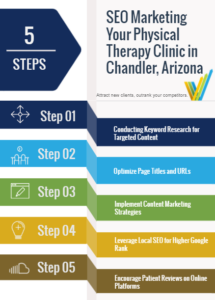Citations are a somewhat technical aspect of SEO. But what they are and how you get them is very critical to how your site ranks.
In fact, they’re one of the most powerful search rankings factors. So powerful that, if all other rankings factors are equal, a website with more citations will most likely rank higher than one with fewer citations.
So What is a Citation?
Put simply, a website citation is a mention of your business’s name, address, and phone number (called “NAP” as an acronym). Your citation does not have to be linked to your website for Google to find it. It can appear on any web page as plain text.
You can find website citations on the BBB and local chamber of commerce websites, business association pages, and portals like SuperPages.com.
Why Does Google Use Citations?
Citations perform several functions in Google’s eyes:
They establish the reputation/authority of a particular website (just like links).
In less competitive niches (like electrical contracting), they act as a source of information for businesses that have no website.
They show your business is part of a known community. For example, if you’re mentioned in a local newspaper or the chamber of Commerce’s website, you are clearly a reputable entity in your locality.
How to Get Citations
The great thing about the web is that it’s so expansive that there’s unlimited room for creativity. Your ability to get citations is limited only to the time or budget you have available.
These are some of the best ways to get citations:
A paid service like Yext gets you listed on many different business directories.
Analyze the competition. What keywords do you want to rank for? Google them and see who ranks the highest. Then, enter their NAP information into Google. A list of sources comes up, and you can figure how to get a citation from each. In some cases, it’s as easy as entering the information and hitting “Submit.”
Create and distribute a press release if you have valuable news to release about your company (a special offer, new acquisition, new service, hiring of a new employee etc…)
Guest blog on niche websites and include your NAP information.
Include your NAP information in PPC ads.
Get involved with your local BBB and chamber of commerce for a link/citation (or both). My rep at the Dallas BBB is very helpful and knowledgeable about citations and I refer all my clients to him: Brian Reagan | District Manager – Phone: 214-740-0343 – Email: brianreagan@dallas.bbb.org.
If you’re feeling ambitious, try to get published in the online version of your local newspaper.
Getting your NAP information posted on a .gov or .edu website (You’ll have to be creative here – maybe your website could be a valuable resource for additional information).
Some easy ones you should get right away include CitySearch.com, DexKnows.com,YellowPages.com, FourSquare.com, and HotFrog.com.
If you want to check where your citations are and how many of them you have, use Whitespark’s Citation Finder.
What to Watch Out For
If you’re building citations or trying to get them, make sure you keep these points in mind:
Always use exactly the same NAP information so Google has no doubt which citations refer to your business.
Your citation’s NAP information must match the NAP on your website and Google+ Local page.
You can use partial citations, which are better than no citation at all. However, it’s not quite as effective as a full citation.
Just Like Links, Not All Citations Count Equally
In fact, the value of a citation varies greatly depending on the website it’s found on. Relatively unknown local business directories are closer to the bottom of the scale. If you get mentioned on a .gov or .edu website, that’s near the top of the value scale.
How to Determine the Quality of a Citation Source
Since quality’s so important, how do you know what to look for? Here are a few steps to check that out:
Use MajesticSEO to analyze the link profile of the site you’d like a citation on. If it’s a good website, most of the links come from other reputable websites. There should also be very little exact-match anchor text. If there’s a high percentage of either of these, you’ll want to avoid using the website as a citation source.
A visual inspection for spam. What exactly is spam? It can mean a lot of things, and Google does its best to keep spam low or non-existent in the search rankings. They don’t give an exact definition, but they do note spam is something like this:
“Spam sites attempt to game their way to the top of search results through techniques like repeating keywords over and over, buying links that pass PageRank or putting invisible text on the screen. This is bad for search because relevant websites get buried, and it’s bad for legitimate website owners because their sites become harder to find.”
Basically, spam websites contribute no value to the web. If a site looks useless, generally it is spammy. You do have to be careful though. Some older business directories have a dated appearance but are actually great places to get citations from.
Avoid low-quality business listing networks. Some of these were designed with the sole intention of manipulating Google’s search rankings. If a visual inspection of the site makes you concerned about its quality, search Google for a footprint found in the site’s footer.
If that website is a network, you’ll find the same listing for the site on many other sites. To check for that, you’d run a Google search that looks something like this: https://www.google.com/search?q=%22_website_footprint_%22+%22_phone_number_%22. Special thanks to Whitespark’s Darren Shaw for offering this technique.
SEOMoz Domain Authority of 20 or greater. 20 is actually a bit borderline – you might want to shoot for 30 or more. If the Domain Authority is between 20-30, and the site’s link profile looks clean and healthy, that’s a good citation. Moz has a special toolbar you can install, or you can also use Open Site Explorer.
Now You Know Everything You Need to Get Started Building Citations
You can build citations yourself, but I will warn you it’s tedious hard work. If you’re a small business owner, you’re time and money are best spent hiring someone else to do it.
Make sure you’re very selective about who you hire to build citations. Remember, there’s plenty of spammy sites out there that get you citations which don’t actually help your cause at all. Analyze your potential options carefully, and remember that you do get what you pay for.






